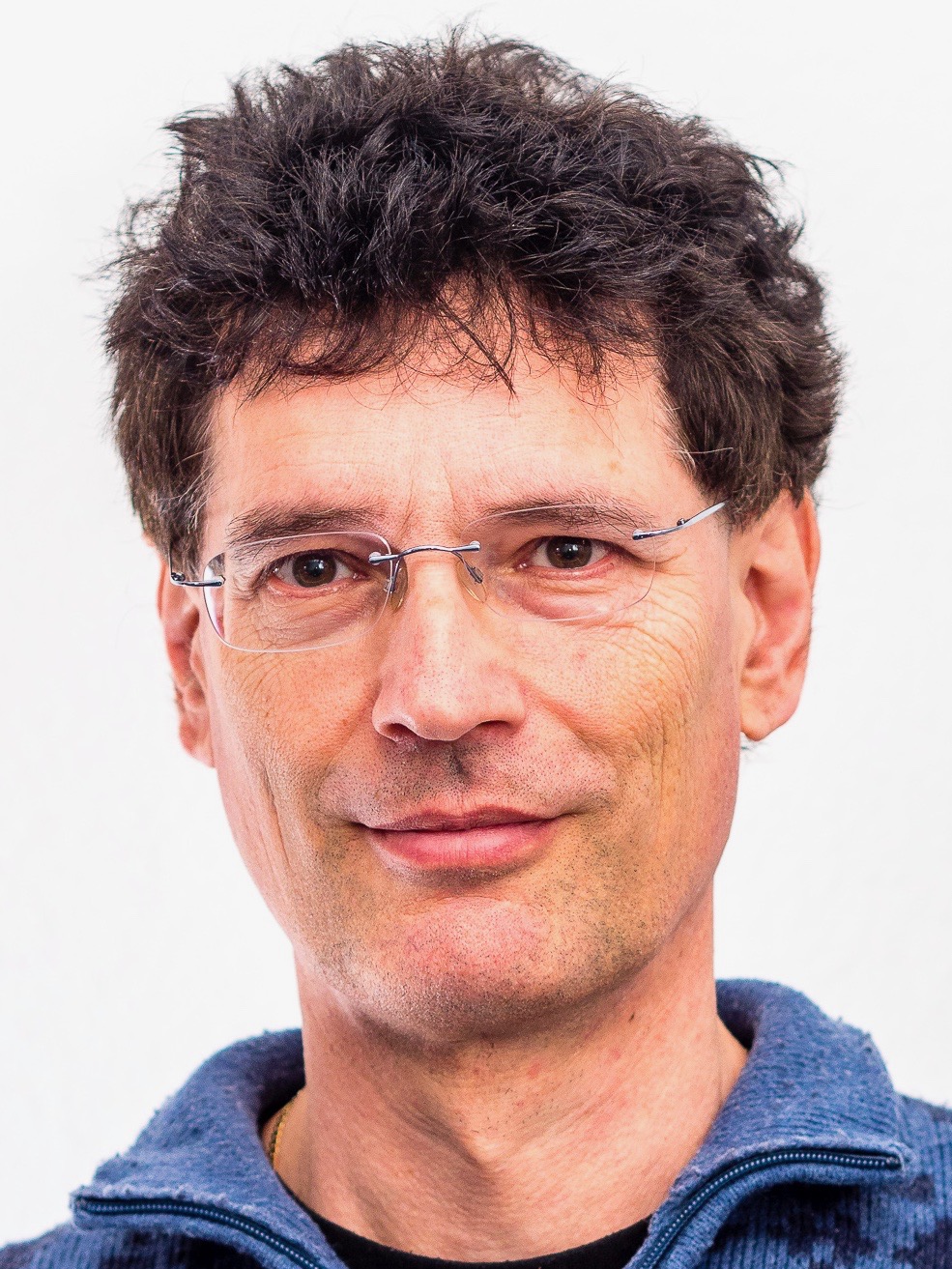

| Private Homepage | https://www.uni-muenster.de/Arithm/deninger/index.html |
| Research Interests | Arithmetische Geometrie |
| Topics in Mathematics Münster | T1: K-Groups and cohomology T4: Groups and actions T5: Curvature, shape, and global analysis |
| Current Publications | • Deninger, C. A pro-algebraic fundamental group for topological spaces. Proceedings of the Steklov Institute of Mathematics Vol. 320, 2023 online • Deninger, Christopher Primes, knots and periodic orbits. , 2023 online • Deninger, Christopher; Wibmer, Michael On the proalgebraic fundamental group of topological spaces and amalgamated products of affine group schemes. , 2023 online • Deninger C. Dynamical systems for arithmetic schemes. Proceedings of the Steklov Institute of Mathematics Vol. 320, 2022 online • Deninger C. There is no "Weil-"cohomology theory with real coefficients for arithmetic curves. Proceedings of the Steklov Institute of Mathematics, 2022 online • Deninger C.; Grundhöfer, T.; Kramer, L. Weil tensors, strongly regular graphs, multiplicative characters, and a qudaratic matrix equation. Proceedings of the Steklov Institute of Mathematics, 2022 online • Deninger C., Werner, A. Parallel transport for vector bundles on p-adic varieties.. J. Algebraic Geom. Vol. 2020 (29), 2020, pp 1-52 online • Deninger C. p-adic limits of renormalized logarithmic Euler characteristics. Groups, Geometry, and Dynamics Vol. 2020, 2019 online • Deninger C., Mellit A. ℤR and rings of Witt vectors W_S(R). Rend. Semin. Mat. Univ. Padova Vol. 2019 (142), 2019, pp 93-102 online |
| Current Projects | • CRC 1442 - A04: New cohomology theories for arithmetic schemes The goal of this project is to study cohomology theories for schemes in order to attack important open problems in arithmetic. Among these theories are topological periodic homology (TP), topological cyclic homology (TC), rational de Rham–Witt cohomology, prismatic cohomology, K-theory, L-Theory and leafwise cohomology of associated dynamical systems. We will prove structural results about those theories as well as make further calculations of specific cases. • EXC 2044 - A1: Arithmetic, geometry and representations The Langlands programme relates representations of (the adele valued points of) reductive groups G over Q - so-called automorphic representations - with certain representations of the absolute Galois group of Q. This programme includes the study of these objects over general global fields (finite extension of Q or Fp (t)) and local fields as well. In its local form the classical programme onlyconsidered l-adic Galois representations of p-adic fields for unequal primes l neq p. In order to allow for a p-adic variation of the objects, it is absolutely crucial to extend it to the case l = p. In the global situation, the automorphic representations in question can often be realised in (or studied via) the cohomology of a tower of Shimura varieties (or related moduli spaces) attached to the group G. We will focus on the following directions within this programme: The p-adic and mod p Langlands programme asks for an extension of such a correspondence involving certain continuous representations with p-adic respectively mod p coefficients. Broadening the perspective to p-adic automorphic forms should, for example, enable us to capture all Galois representations, not just those having a particular Hodge theoretic behaviour at primes dividing p. This extended programme requires the introduction of derived categories. We will study differential graded Hecke algebras and their derived categories on the reductive group side. On the Galois side, we hope to use derived versions of the moduli spaces of p-adic Galois representations introduced by Emerton and Gee. The geometric Langlands programme is a categorification of the Langlands programme. We plan to unify the different approaches using motivic methods. In another direction, we study the geometry and arithmetic of moduli stacks of global G-shtukas over function fields. Their cohomology has been the crucial tool to establish large parts of the local and global Langlands programme over function fields. Variants of G-shtukas are also used to construct and investigate families of p-adic Galois representations. Cohomology theories are a universal tool pervading large parts of algebraic and arithmetic geometry. We will develop and study cohomology theories, especially in mixed characteristic, that generalise and unify étale cohomology, crystalline cohomology and de Rham cohomology as well as Hochschild cohomology in the non-commutative setting. Developing (topological) cyclic homology in new contexts is an important aim. A main goal is to construct a cohomology theory that can serve the same purposes for arithmetic schemes as the l-adic or crystalline cohomology with their Frobenius actions for varieties over finite fields. Ideas from algebraic geometry, algebraic topology, operator algebras and analysis blend in these investigations. online • Cluster of Excellence 2044 - Mathematics Münster: Dynamics – Geometry – Structure We will tackle fundamentally important mathematical problems, viewing mathematics as an organic whole with countless interactions. Our research is unified by three major approaches: focusing on the underlying structure of a given problem, taking the geometric viewpoint and studying the relevant dynamics of group or semigroup actions. The theories which we will build will not only solve the problems under consideration but also many others of a similar nature; these theories will also raise exciting new questions. online | c dot deninger at uni-muenster dot de |
| Phone | +49 251 83-33731 |
| FAX | +49 251 83-32720 |
| Room | 413 |
| Secretary | Sekretariat Dierkes Frau Gabi Dierkes Telefon +49 251 83-33730 Zimmer 414 |
| Address | Prof. Dr. Christopher Deninger Mathematisches Institut Fachbereich Mathematik und Informatik der Universität Münster Einsteinstrasse 62 48149 Münster Deutschland |
| Diese Seite editieren |


